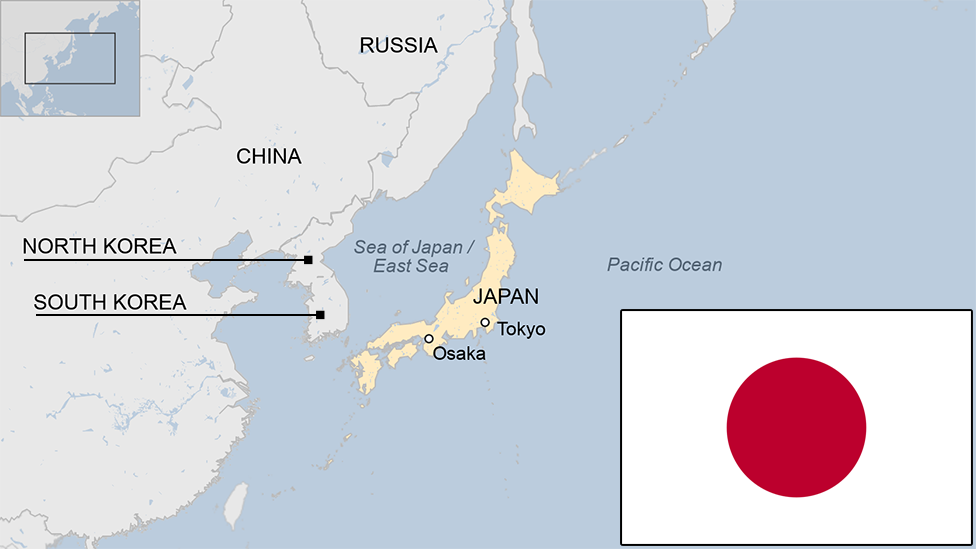Japan to pay Fukushima worker cancer compensation
- Published
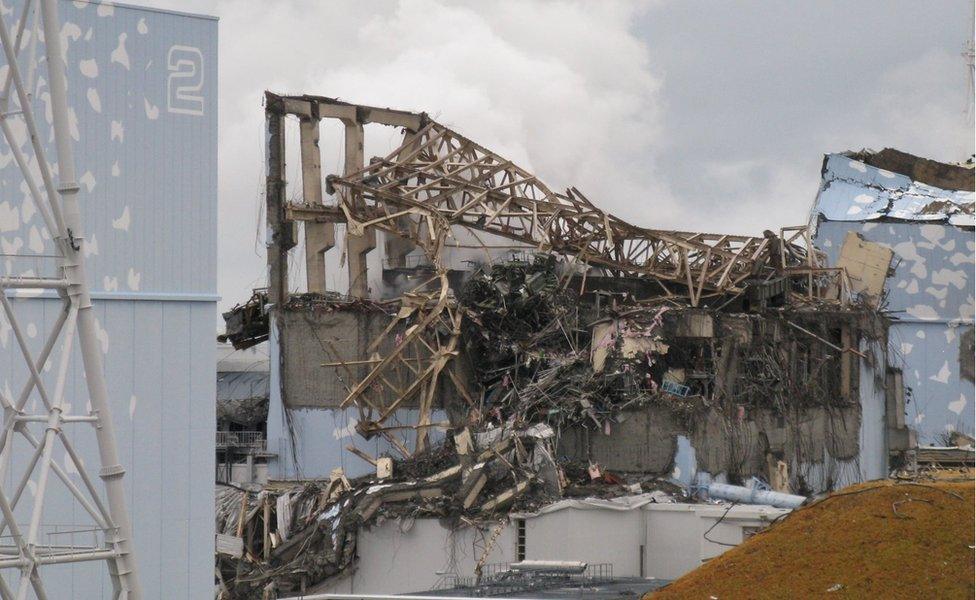
The disaster led to a big rise in anti-nuclear feeling in Japan
Japan's government has acknowledged that a worker involved in clean-up work at the Fukushima nuclear plant may have developed cancer as a result.
Officials say the man will be entitled to compensation for work-related illness, in the first cancer case linked to the Fukushima plant meltdown.
The man, in his 40s, is suffering from leukaemia.
The nuclear plant was badly damaged in the earthquake and subsequent tsunami that hit Japan on 11 March 2011.
The man worked at the damaged plant for more than a year, and was exposed to a total of 19.8 millisieverts of radiation during that period.
That is nearly four times the annual dose allowed for nuclear workers in Japan but is less than half the amount US nuclear workers can be exposed to in a single year.
The man will receive compensation to cover medical costs and lost income, government officials said.
"While the causal link between his exposure to radiation and his illness is unclear, we certified him from the standpoint of worker compensation," a health ministry official said in quotes carried by Kyodo news agency.
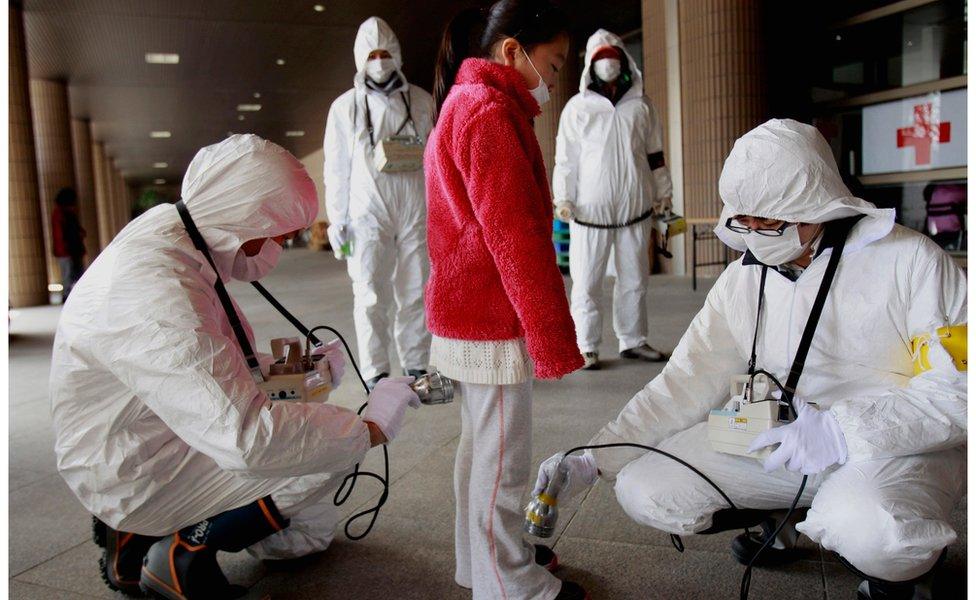
There has been heated debate about the dangers of radiation from the plant
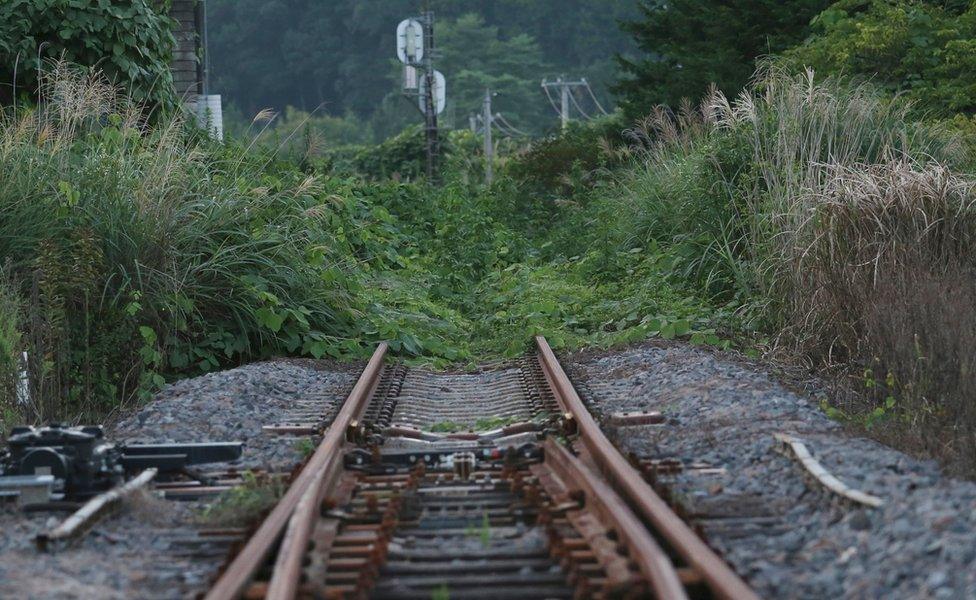
Some evacuated towns near the plant have now been reopened
Three other Fukushima workers are waiting to have their cancer cases assessed.
Former plant manager Masao Yoshida died of oesophagael cancer in 2013 - but plant operator Tokyo Electric Power Company (Tepco) denied his death was related to the 2011 accident, saying the cancer would have taken several more years to develop.
More than 45,000 people have worked on the clean up at the Fukushima plant.
Anti-nuclear mood
The 2011 tsunami swamped the cooling systems of the Fukushima Dai-ichi Nuclear Power Plant and led to the worst nuclear accident since the Chernobyl disaster in 1986.
Since the disaster, the public mood has turned against nuclear energy, prompting the shutdown of all Japan's nuclear power reactors. Only two have restarted since - one in August, and one of them last week.
Despite opposition, Prime Minister Shinzo Abe has been pushing to restart the country's nuclear plants and reduce Japan's newfound dependence on expensive, imported fossil fuel.
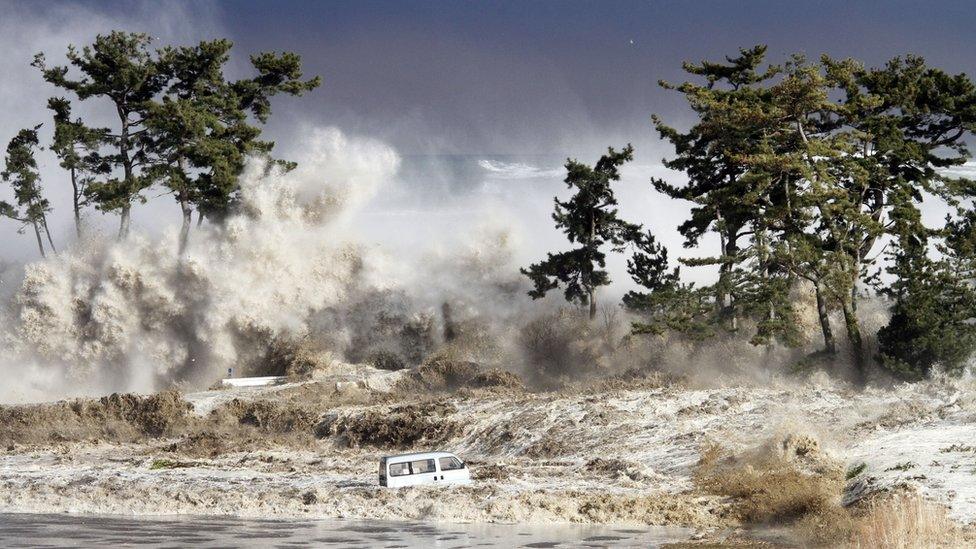
More than 18,000 people were killed by the 2011 tsunami
- Published5 July 2012
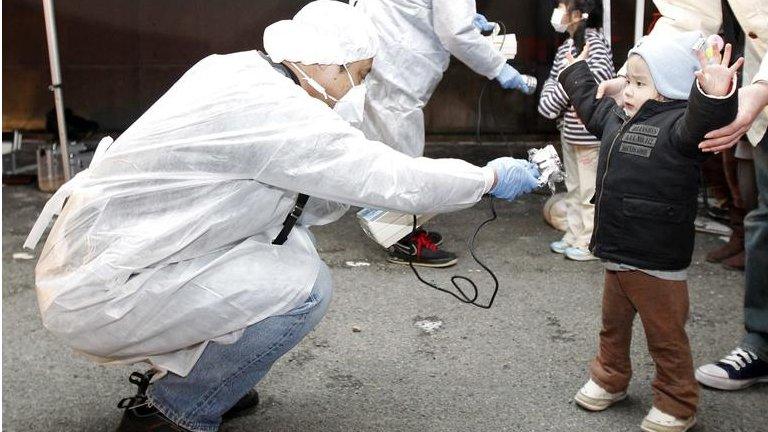
- Published5 September 2015
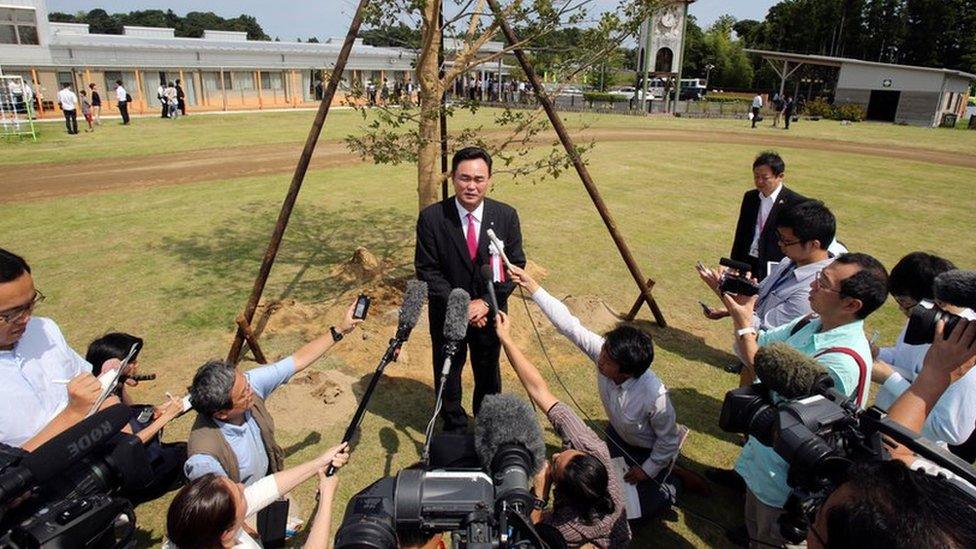
- Published11 August 2015
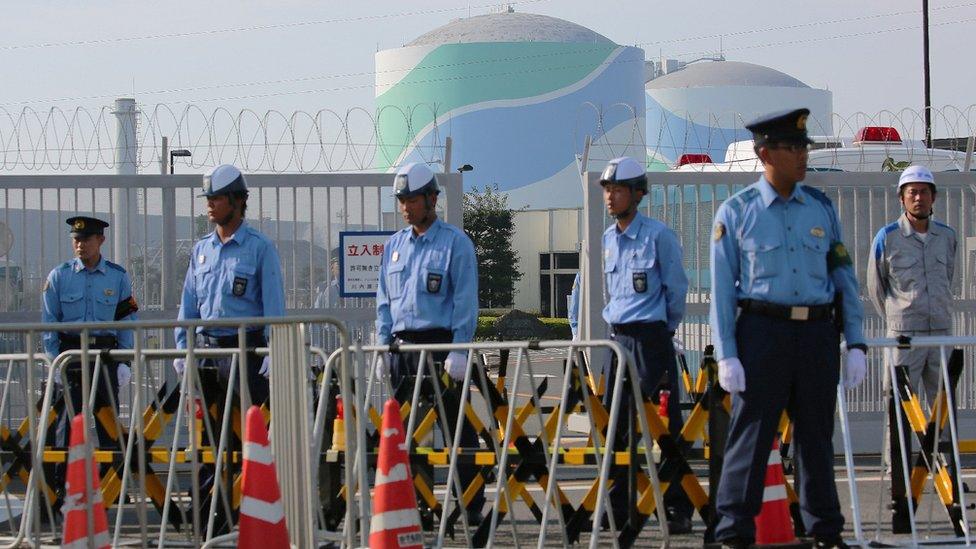
- Published13 April 2015
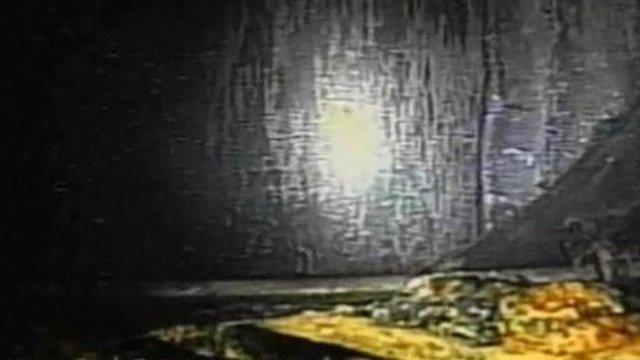
- Published29 October 2024
